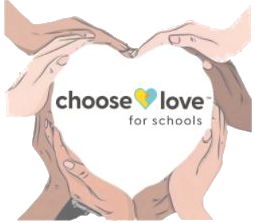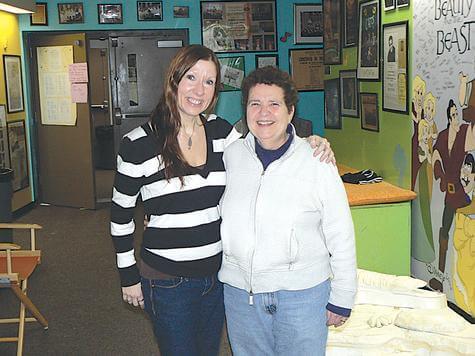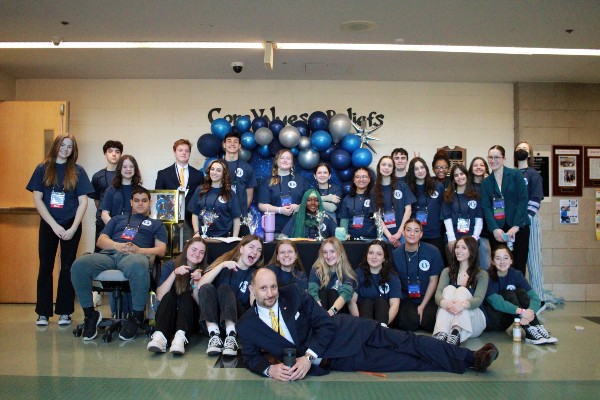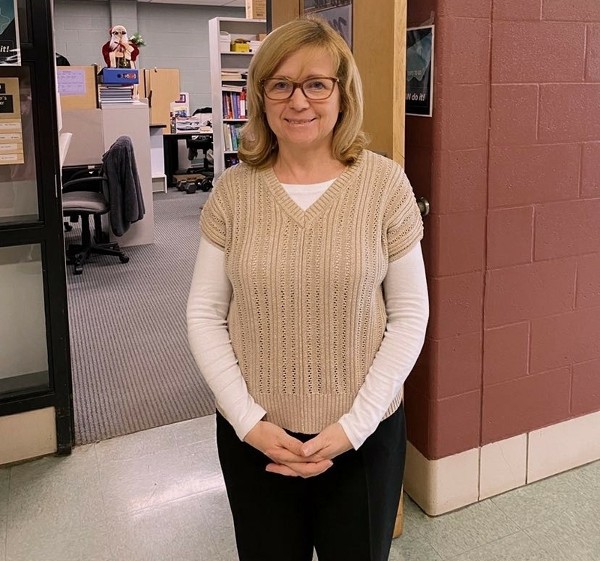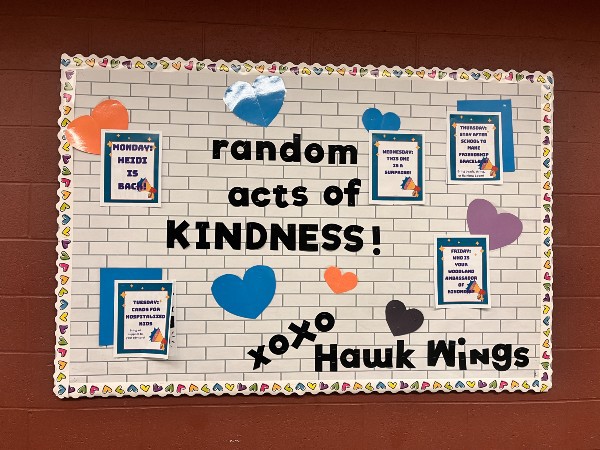The Woodland GSA recently had a visit from Toni Cartisano, a member of the Stonewall Speakers, to talk about her story of self discovery and how she wishes to help LGBT youth across Connecticut. She also told the story of the 1995 Salt Lake City GSA legal battle. Stonewall Speakers, a program of the Connecticut Stonewall Foundation, Inc., is an all-volunteer speaker’s bureau comprised of lesbian, gay, bisexual, transgender people and their allies. The allies are those not apart of the LGBT community and who wish to help be apart of the change. LGBT folks and their allies have worked together to change the overall perception of the community, and the world continues to become more tolerant every day. Cartisano has witnessed the world change around her as the LGBT+ community became more widely accepted, which helped her start to accept who she is herself.
Cartisano grew up in Greenwich, Connecticut in the 80s. She was apart of the jazz band and also did choir. She developed a love for music, and later on became a teacher at Branford High School, and directed the spring musical there. She was widely loved by the student body, and students often sought her out when they needed support. One day, two young girls approached Cartisano asking if they could start a GSA at their school. This really made Cartisano think.
“When these girls approached me, the first thing that entered my mind was, ‘will people think I’m gay for starting a GSA?’” Cartisano shared. “It really showed how at the time, even being remotely involved with LGBT people would have the public judge you.”
Cartisano was still discovering who she was herself, and often called LGBT hotlines and went to meetings to talk to people potentially like her.
“If there was even a hint that I might’ve been gay, I would’ve been fired. That’s just how it was back then,” Cartisano said. “In the early 80’s, people were way less accepting than they are now, and it’s sad that I even had to think about losing my job just so kids could be themselves.”
Being asked about a GSA made Cartisano have to make a tough decision- keep her job, or help create a safe space for the students of her school. LGBT rights were not protected under the law until the 1950’s, and even after, the government gave businesses the right to fire employees based on sexual orientation.
Cartisano decided that the club was more important to her. She put it together, but never revealed to the entire school that it was a GSA. The club members were too scared to have it put on the announcements, and instead just had meeting times spread by word of mouth. Cartisano’s classroom was also close to the locker rooms for sports, and the students begged to have the room moved farther away. The athletes tended to be the most aggressive towards the LGBT community, so the students apart of the club wanted to stay as far away from them as possible.
“These poor children were fearing for their lives,” Cartisano explained. “It was so bad back then, we had to move the classroom away from the locker rooms and we had the meetings at night after school ended.”
The students were afraid of being seen going to GSA meetings, so the club would gather at 7 P.M. The members feared that people would assume, so they did all they could to keep it on the down low while also silently encouraging students to get involved. The violence towards the LGBT community was so strong that the girls in the club would ask Cartisano if she could walk them to their cars.
“Their classmates would hide in the bushes and jump them,” Cartisano remembered. “After every meeting, I had to walk them to their cars so they could get home safely, but it also made me think, ‘who’s going to walk me to my car?’”
The club continued on in the same way for months, and slowly people started to support it. Over the course of a year, the club grew from a small handful at first to an impressive 15 active members. Cartisano is grateful for the events that took place in Salt Lake City, Utah, that helped change the future of GSA’s all across the nation, and helped her GSA gain steam.
In 1995, there was a high school in a very Mormon area of Salt Lake City. A group of LGBT students approached the Board of Education and asked if they could start a GSA. The answer they received was a very blunt “no.” This began the long legal battle of East High vs. The Student Body.
“It started with the initial lawsuit by the students against the school, for taking away their right to express themselves at school,” Cartisano explained. “The students said they had the right to meet just like any other club at the school.”
The school won the original lawsuit on the case, claiming that they were not being discriminatory; they simply just did not allowed clubs that were non-academic. The students’ fight did not end there. They formed a new club branched from the Social Studies Department called People Respect the Importance of Social Movement, or PRISM for short. The students claimed it was an academic club due to the Social Studies aspect; however they lost that lawsuit too.
“The town realized that the students weren’t going to give up, so the school took the most extreme measure,” Cartisano noted. “They got rid of all the clubs and only allowed students to participate in sports.”
This caused an uproar with the students who claimed that the removal of clubs wasn’t fair. They decided to team up with the GSA students to protest against the new rule. By 2000, after a five year long legal battle, the school finally accepted the GSA and reinstalled the clubs for students.
The Gender and Sexuality Alliance is stronger than ever, and Cartisano is proud to have been a part of the first wave of GSAs across the country, and one of the first in Connecticut. She plans to keep working with Stonewall Speakers to help LGBT students across the state.
“This was honestly the most monumental thing that could’ve happened for the LGBT community in schools,” Cartisano reflected. “It started the wave of GSAs popping up in schools all across the country, and it was the first step in the right direction.”

